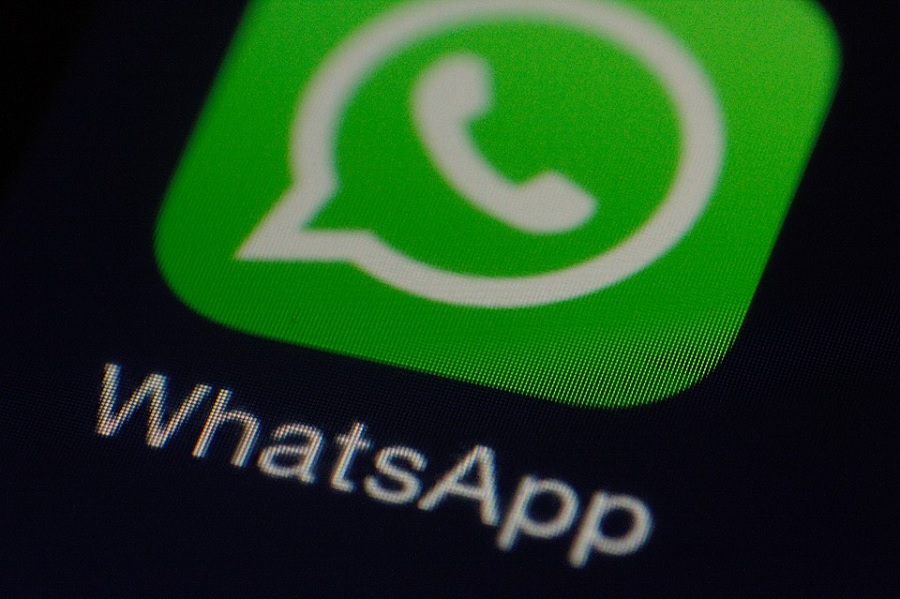It has been known for a few months that WhatsApp is finally working on adding multi-device support. A new report suggests that, as part of this massive improvement, the Facebook-owned messaging app may be getting a native app for tablets as well.
The report comes from the reliable WhatsApp news source WABetaInfo after tweeting recently that the company is working on the app’s “multi-device 2.0.” The upgrade will reportedly support iPad as a “new linked device,” along with Android-powered tablets.
The release of a native app on iPad means that using WhatsApp will be much simpler in the future. However, WABetaInfo noted that this version is still “under development” and will be released in a future update.
NEWS: WhatsApp is finally working on multi-device 2.0, and you can use iPad as new linked device ☄️
— WABetaInfo (@WABetaInfo) August 20, 2021
Android tablets are also planned to support multi-device on WhatsApp for Android!
It's under development and it will be released in a future update. Follow me to discover more ???? pic.twitter.com/rND4xQfBDj
In a follow-up tweet, WABetaInfo clarified that as a native app the WhatsApp for iPad can function independently. The same source also mentioned that anyone who was able to join the WhatsApp beta for iOS should automatically have access to the iPad version once it enters beta testing.
It may be surprising but, to this day, WhatsApp does not have an actual app yet for tablets. iPad users can only access their accounts by using the WhatsApp web browser version. That means Apple tablet owners will have to open Safari or other browsers and go to web.whatsapp.com. Like the usual web login, tablet users can scan the QR code using the WhatsApp app on their iPhones.
Meanwhile, the development of a native app for iPad and Android tablets appears to be part of WhatsApp’s upcoming multi-device support. This will finally allow billions of WhatsApp users to access their accounts on other devices even though their smartphones are turned off or not connected to the internet.
Facebook confirmed in July that the WhatsApp multi-device support has entered a limited public beta test. And the new function will still support WhatsApp’s staple end-to-end encryption feature. “Importantly, we have developed new technologies to maintain end-to-end encryption while still managing to sync your data — such as contact names, chat archives, starred messages, and more — across devices,” Facebook Engineering said in a blog post.
Photo by Alfredo Rivera (arivera) on Pixabay



 Trump Orders Federal Agencies to Halt Use of Anthropic AI Technology
Trump Orders Federal Agencies to Halt Use of Anthropic AI Technology  Apple to Begin Mac Mini Production in Texas Amid $600 Billion U.S. Investment Plan
Apple to Begin Mac Mini Production in Texas Amid $600 Billion U.S. Investment Plan  Nvidia Earnings Preview: AI Chip Demand, Data Center Growth and Blackwell Shipments in Focus
Nvidia Earnings Preview: AI Chip Demand, Data Center Growth and Blackwell Shipments in Focus  OpenAI Hires Former Meta and Apple AI Leader Ruomin Pang Amid Intensifying AI Talent War
OpenAI Hires Former Meta and Apple AI Leader Ruomin Pang Amid Intensifying AI Talent War  Samsung and SK Hynix Shares Hit Record Highs as Nvidia Earnings Boost AI Chip Demand
Samsung and SK Hynix Shares Hit Record Highs as Nvidia Earnings Boost AI Chip Demand  Nvidia Earnings Beat Expectations as AI Demand Surges, Stock Rises on Strong Revenue Outlook
Nvidia Earnings Beat Expectations as AI Demand Surges, Stock Rises on Strong Revenue Outlook  U.S. Deploys Tomahawks, B-2 Bombers, F-35 Jets and AI Tools in Operation Epic Fury Against Iran
U.S. Deploys Tomahawks, B-2 Bombers, F-35 Jets and AI Tools in Operation Epic Fury Against Iran  Snowflake Forecasts Strong Fiscal 2027 Revenue Growth as Enterprise AI Demand Surges
Snowflake Forecasts Strong Fiscal 2027 Revenue Growth as Enterprise AI Demand Surges  Anthropic Refuses Pentagon Request to Remove AI Safeguards Amid Defense Contract Dispute
Anthropic Refuses Pentagon Request to Remove AI Safeguards Amid Defense Contract Dispute  Nintendo Share Sale: MUFG and Bank of Kyoto to Sell Stakes in Strategic Unwinding
Nintendo Share Sale: MUFG and Bank of Kyoto to Sell Stakes in Strategic Unwinding  Meta Encryption Plan Sparks Child Safety Concerns Amid New Mexico Lawsuit
Meta Encryption Plan Sparks Child Safety Concerns Amid New Mexico Lawsuit  OpenAI Faces Scrutiny After Banning ChatGPT Account of Tumbler Ridge Shooting Suspect
OpenAI Faces Scrutiny After Banning ChatGPT Account of Tumbler Ridge Shooting Suspect  Samsung Electronics Stock Poised for $1 Trillion Valuation Amid AI and Memory Boom
Samsung Electronics Stock Poised for $1 Trillion Valuation Amid AI and Memory Boom  Federal Judge Blocks Virginia Social Media Age Verification Law Over First Amendment Concerns
Federal Judge Blocks Virginia Social Media Age Verification Law Over First Amendment Concerns  Synopsys Q2 Revenue Forecast Misses Expectations Amid China Export Curbs and AI Shift
Synopsys Q2 Revenue Forecast Misses Expectations Amid China Export Curbs and AI Shift  Pentagon Weighs Supply Chain Risk Designation for Anthropic Over Claude AI Use
Pentagon Weighs Supply Chain Risk Designation for Anthropic Over Claude AI Use 































